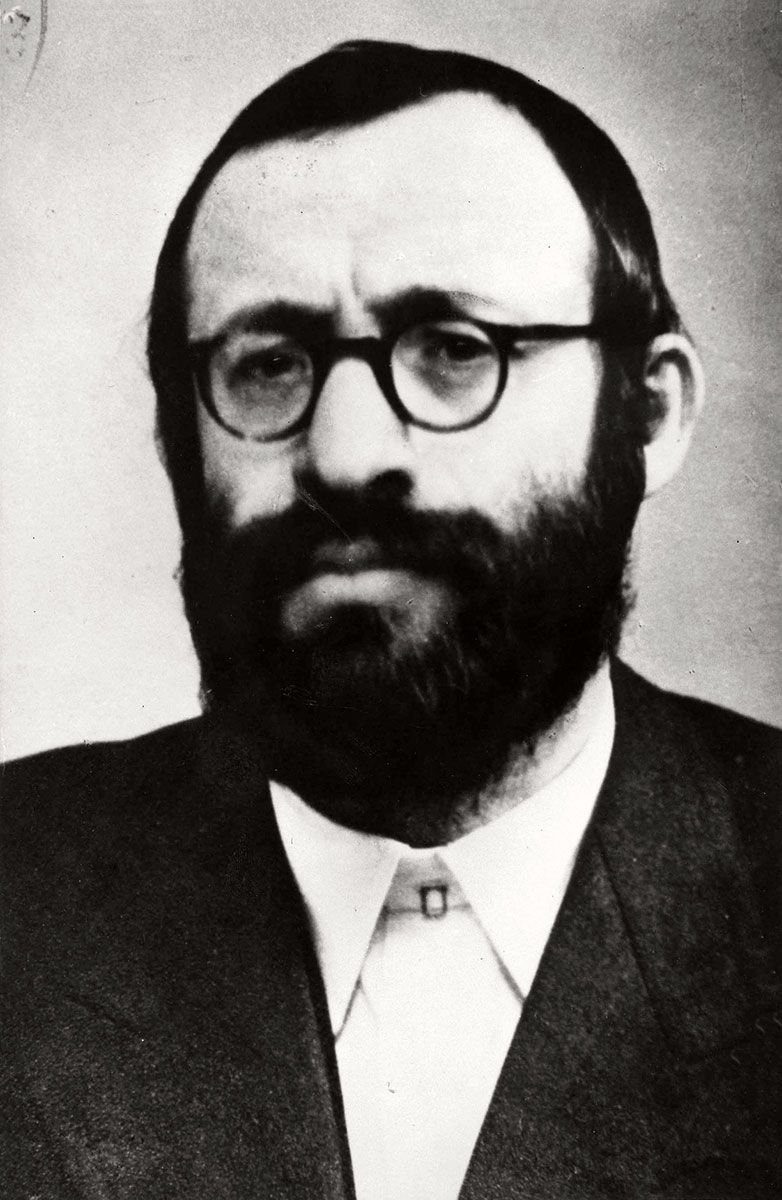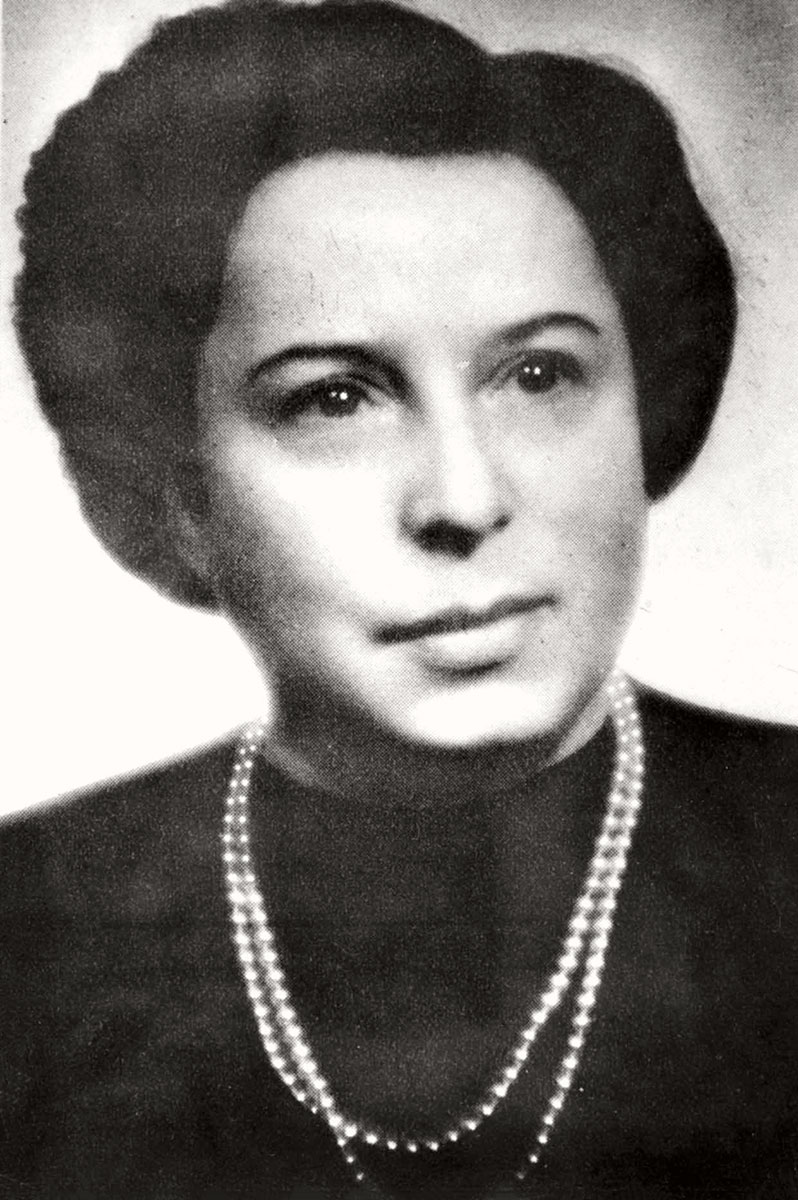In the spring of 1942, the deportation of Slovakia’s Jews to Poland began. In view of the deportations, a group of activists – the Working Group - organized an effort to stop them. The Group was headed by Gisi Fleischmann, one of the heads of the Women’s International Zionist Organization there, and Michael Dov Weissmandel, an ultra-Orthodox rabbi, along with public figures from various streams – Zionists, Orthodox and assimilated Jews.
In its efforts to halt the deportations, the Working Group adopted a policy of bribing key officials in the Slovakian administration and the German representation. In the course of negotiations over the summer of 1942, the Group paid ransom money to Dieter Wisliceny, Eichmann’s delegate in Slovakia. For various considerations, the deportations were halted in the autumn of 1942, but the Working Group believed this was a result of their bribes, and this encouraged them for the future.
The pause in the deportations convinced the Working Group that bribery was essential. As a result, Rabbi Weissmandel conceived the “Europa Plan” - the saving of European Jewry through the payment of ransom. The Group’s negotiations with the SS on this matter lasted from November 1942 until August 1943. During this period, Group members contacted Jewish organizations in Europe as well as representatives of the Land of Israel, headquartered in Istanbul, in an effort to receive their agreement to the Plan and to mobilize the necessary funds. The negotiations with the Germans came to naught and turned out to be just another SS deception.
Despite their disappointment at the failure of the Europa Plan, the members of the Working Group did not relent intheir efforts to save Jews. News about the murders in Poland induced them to track the fate of the deportees and to help those fleeing from Poland to Slovakia with hiding places and false papers. At the same time, they attempted to spread the information about the murders in the hope of thwarting the anticipated deportation of Hungarian Jewry. Their efforts failed and some of the members were arrested. At the end of 1944, their leaders, Rabbi Weissmandel and Gisi Fleischmann, were deported to Auschwitz.
Four Jewish prisoners escaped Auschwitz-Birkenau camp in the spring of 1944. Rudolph Vrba and Alfred Wetzler reached Slovakia in May 1944. Based on their testimony, a member of the underground Working Group compiled a report that contained a warning regarding preparations being made in the camp to murder Jews from Hungary and Czech Lands. An additional report was given in June 1944 by two other escapees, Czesław Mordowicz and Arnošt Rosin, that the murder of Hungarian Jewry was beginning. The reports were passed to Rabbi Weissmandel and to other members of the Working Group. They sent them to various persons and agencies in Hungary and Switzerland, calling upon the Allies to bomb Auschwitz and the railway lines leading there, and requesting that the Red Cross visit the camp. When the reports arrived in the West and the information contained in them was disseminated, the free world learned about the true nature of the Auschwitz camp.
Rabbi Abba Avraham Frieder
Abba Avraham Frieder, rabbi of the Nova Mesto community, was one of the leaders of the Working Group. In 1942-1944, he initiated the establishment of work camps for Jews in Slovakia to prevent their deportation to the death camps. Rabbi Frieder took advantage of his special connections with the Slovakian Minister of Education, Jozef Sivak, to transmit requests and receive information that helped save Jews. In addition, he tracked the fate of those deported to Poland and sought as much as possible to maintain contact with them. Frieder survived the war, but his wife and daughter perished.
Rabbi Michael Dov Weissmandel (1903-1956)
In the spring of 1942, at the height of the deportation of Slovakian Jewry for extermination, Michael Dov Weissmandel, rabbi of the Nitra Yeshivah, and the other Working Group members, sought to rescue Europe’s Jews. Rabbi Weissmandel was among those who conceived the idea that ransom payments to the SS could stop the deportations to Poland, and he acted to put this plan into effect. In 1944, the deportations from Slovakia to Auschwitz were renewed after a hiatus of two years. Rabbi Weissmandel and his family were deported. He jumped from the train, hid and survived. His wife and children were murdered.
Gisi Fleischmann (1897-1944)
Gisi Fleischmann was a Zionist activist, a Slovak WIZO leader and a director of the Working Group underground organization. She initiated aid and rescue operations for the Jews of Slovakia and other Jews, and feverishly worked to rally the free world to halt the extermination. Gisi wrote in September 1942 to her daughter in the Land of Israel: “If I pass through this difficult period, I believe that I will be able to say that my life was not in vain… Above all personal suffering is the fate of the People of Israel.” When the deportations from Slovakia were renewed in the summer of 1944, Gisi Fleischmann rejected a suggestion to save herself. In October 1944, she was deported to Auschwitz, where she was murdered.








